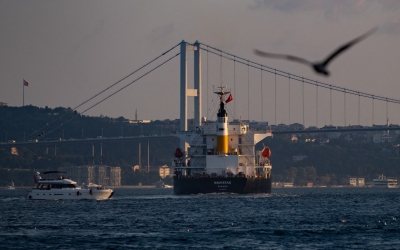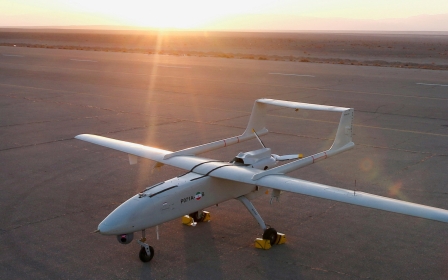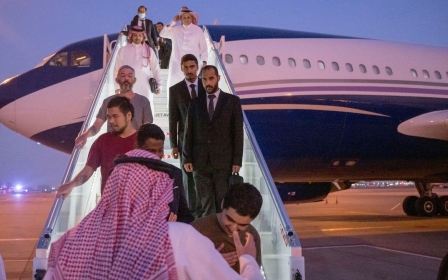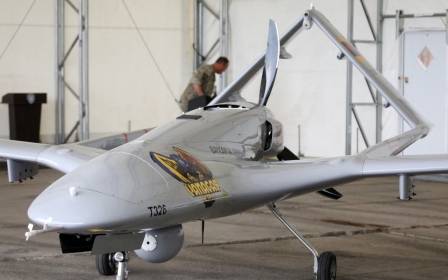Turkey, Ukraine, UN press ahead with Black Sea grain deal despite Russian pullout
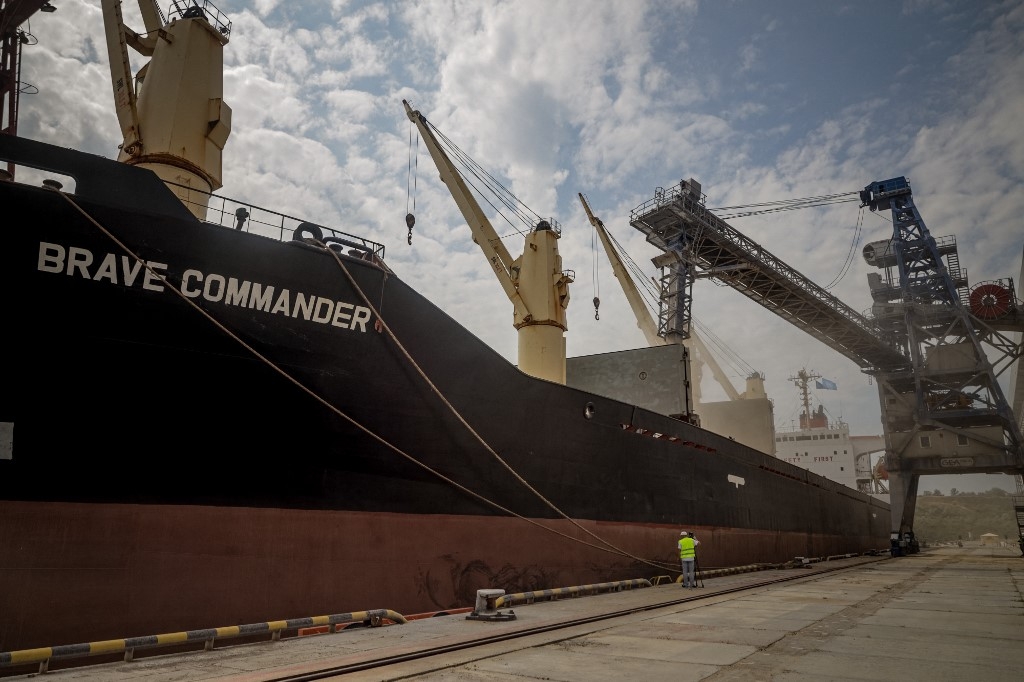
Russia has suspended its participation in the inspection of cargo ships carrying Ukrainian grain, the Joint Coordination Centre (JCC), the body overseeing the deal, said late Sunday.
The announcement came a day after Russia suspended its participation in a landmark agreement that allowed vital grain exports to resume.
"The delegation of the Russian Federation informed that... it suspends its participation in the implementation of the activities of the initiative, including in inspections, for an indefinite time," said a JCC statement.
Turkey, Ukraine and the United Nations said they would press ahead to implement a Black Sea grain deal with a transit plan in place for 16 ships on Monday, despite Russia suspending its participation in the pact.
Russia, which invaded Ukraine on 24 February, halted its role in the Black Sea deal on Saturday for an "indefinite term" because it said it could not "guarantee the safety of civilian ships" travelling under the pact after an attack on its Black Sea fleet.
Turkey and the UN, the two main brokers of the July deal, scrambled on Sunday to save it. UN Secretary-General Antonio Guterres was deeply concerned about Russia's move and delayed a foreign trip to try and revive the agreement that was intended to ease a global food crisis, his spokesperson said.
Following Russia's move, wheat prices on international commodities markets were expected to leap on Monday as both Russia and Ukraine are among the world's largest wheat exporters, analysts said.
More than 9.5m tonnes of corn, wheat, sunflower products, barley, rapeseed and soy have been exported since July. Under the deal, a Joint Coordination Centre (JCC) - made up of UN, Turkish, Russian and Ukrainian officials - agrees on the movement of ships and inspects the vessels.
No ships moved through the established maritime humanitarian corridor on Sunday. But the UN said in a statement that it had agreed with Ukraine and Turkey on a movement plan for 16 vessels on Monday - 12 outbound and four inbound.
It said the Russian officials at the JCC had been told about the plan, along with the intention to inspect 40 outbound vessels on Monday, and noted that "all participants coordinate with their respective military and other relevant authorities to ensure the safe passage of commercial vessels" under the deal.
Turkish Defence Minister Hulusi Akar was in contact with his Russian and Ukrainian counterparts to try and salvage the agreement and had asked the parties to avoid any provocation, the Turkish defence ministry said.
Nato and the EU have urged Russia to reconsider its decision. US President Joe Biden on Saturday called Russia's move "purely outrageous" and said it would increase starvation. US Secretary of State Antony Blinken accused Moscow of weaponising food.
On Sunday, Russia's ambassador to Washington snapped back, saying the US response was "outrageous" and made false assertions about Moscow's move.
'False pretext'
Russia's defence ministry said Ukraine attacked the Black Sea Fleet near Sevastopol on the Russian-annexed Crimean peninsula with 16 drones early on Saturday, and that British navy "specialists" had helped to coordinate the "terrorist" attack.
Moscow also accused British navy personnel of blowing up the Nord Stream gas pipelines last month, a claim that London said was false and designed to distract from Russian military failures in Ukraine.
Ukraine has neither confirmed nor denied it was behind the attack. The Ukrainian military suggested that Russians themselves may have been responsible for the explosions.
'This is a completely transparent attempt by Russia to return to the threat of large-scale famine for Africa, for Asia'
- Ukrainian President Volodymyr Zelensky
Ukrainian Foreign Minister Dmytro Kuleba said Moscow used the explosions 220 km (137 miles) away from the grain corridor as a "false pretext" for a long-intended move.
Ukraine often accuses Russia of using the Black Sea Fleet to fire cruise missiles at Ukrainian civilian targets, a charge supported by some military analysts who say that makes the fleet a legitimate military target.
Ukrainian President Volodymyr Zelensky said the UN and the Group of 20 (G20) major economies must make a strong response to what he called Russia's nonsensical move.
"This is a completely transparent attempt by Russia to return to the threat of large-scale famine for Africa, for Asia," Zelensky said in a video address, adding that Russia should be kicked out of the G20.
Russia's invasion has recently been dominated by a Ukrainian counteroffensive and Russian drone and missile attacks that have destroyed more than 30 percent of Ukraine's generating capacity and hit populated areas. Each side has accused the other of being prepared to detonate radioactive bombs.
Russia asked the UN Security Council to meet on Monday to discuss the Sevastopol attack, Deputy UN Ambassador Dmitry Polyanskiy wrote on Twitter.
Ships blocked
The grain deal had restarted shipments from Ukraine, allowing sales on world markets, targeting the pre-war level of 5m metric tonnes exported from Ukraine each month.
But ahead of its 19 November expiry, Russia had said that there were serious problems with it and Ukraine complained that Moscow had blocked almost 200 ships from picking up grain cargoes.
The deal ensured safe passage in and out of Odesa and two other Ukrainian ports.
Zelenskiy accused Russia of wanting to escalate the crisis, saying 218 ships were blocked and waiting to either carry food or enter Ukrainian ports.
He said 40,000 tonnes of wheat had been loaded onto a ship at the port of Chornomorsk, chartered by the UN Food Programme and intended for Ethiopia, which he said was "on the brink of starvation" and, like Yemen and Somalia, facing "catastrophic" food shortages.
"We are ready to release this ship into the sea," he said, but like other ships with agricultural products, it was being forced to wait, "because Russia is blackmailing the world with hunger", he said.
Middle East Eye delivers independent and unrivalled coverage and analysis of the Middle East, North Africa and beyond. To learn more about republishing this content and the associated fees, please fill out this form. More about MEE can be found here.


